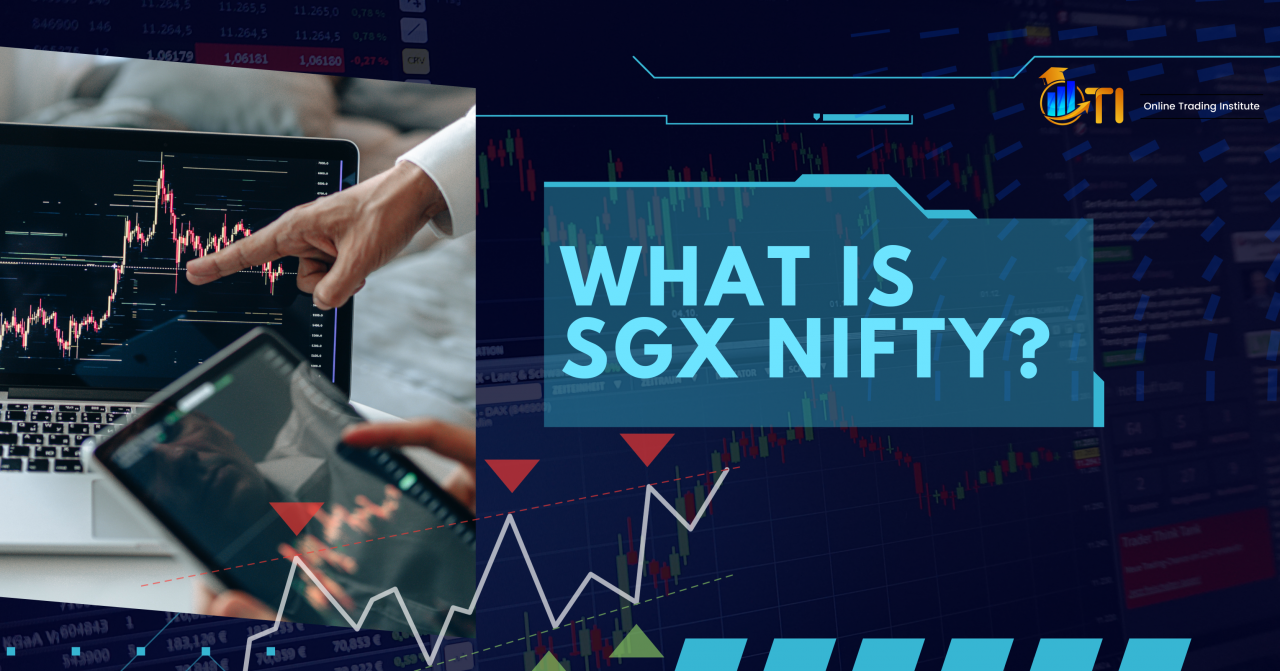The stock market is a dynamic and complicated financial environment in which investors buy and sell financial instruments. The Nifty, or National Stock Exchange Fifty, is a major player in the Indian stock market.
However, another term that is frequently used when discussing market patterns and forecasts is SGX Nifty.
In this post, we’ll delve into the complexities of the SGX Nifty, exploring its nature, differences from the Indian Nifty, and impact on Indian markets.

What is Nifty?
The Nifty, often known as the Nifty 50, is the flagship index of India’s National Stock Exchange (NSE). Nifty, which consists of the 50 most actively traded stocks across multiple sectors, serves as a benchmark for the overall performance of the Indian equity market.
It is frequently used by investors, analysts, and fund managers to forecast market trends and make sound investment decisions.
What is SGX Nifty?
The SGX Nifty, often known as the Singapore Nifty, refers to the Nifty futures contracts traded on the Singapore Exchange (SGX).In simple terms, SGX Nifty lets investors speculate on Nifty’s future performance in the Singaporean financial market.
These futures contracts are based on the Nifty index and are a popular tool for investors looking to gain exposure to the Indian equities market without physically trading on the NSE.
How is SGX Nifty Different from Indian Nifty?
While the SGX Nifty and the Indian Nifty are both linked, they operate in different locations and under different regulatory frameworks.
Time Zone and Geographical Location
The most obvious difference is the geographical location. The Indian Nifty is traded on the NSE in India, whilst the SGX Nifty is traded on the Singapore Exchange.Because of the time difference, SGX Nifty allows investors to trade Nifty contracts even when Indian markets are closed, providing for 24-hour price discovery.
Regulatory Framework
The regulatory systems that govern these indices also differ. The Indian Nifty is governed by the Securities and Exchange Board of India (SEBI), whilst the Singapore Exchange Nifty is governed by the Monetary Authority of Singapore (MAS).Regulatory differences might have an impact on trading activities and investor protection measures.
How Does SGX Nifty Impact the Indian Markets?
The impact of the SGX Nifty on Indian markets is a topic of debate among investors. While SGX Nifty allows global investors to access Indian markets, it also brings some complications.
Global price discovery
One of the most significant effects of the SGX Nifty on Indian markets is its involvement in global price discovery. Because the SGX Nifty trades during global trading hours, investors are able to react to global events and news that may affect Indian markets before they open. When the NSE opens, this can result in price disparities and higher volatility.
Foreign Institutional Investors (FIIs)
The SGX Nifty is an intermediary through which foreign institutional investors (FIIs) may gain exposure to Indian markets.
Trading SGX Nifty futures allows these investors to take positions on the Nifty index without having to participate directly on the Indian markets. This could lead to increasing foreign investment in Indian stocks.
Impact on Indian Opening
Market participants in India actively follow the trends of the SGX Nifty, particularly before the opening of the NSE.
Traders frequently look to the SGX Nifty for clues on the market’s anticipated direction, and major differences between the SGX Nifty and the real Nifty opening can lead to fast changes as market players react to fresh information.
Advantages of SGX Nifty
Global Access to Indian Markets
One of the most key benefits of the SGX Nifty is that it allows global investors easy access to Indian markets. This has the potential to boost liquidity in Indian shares and attract international money, thereby contributing to the Indian economy’s growth.
24-Hour Trading
The SGX Nifty’s 24-hour trading cycle lets investors to manage their positions and respond to global events outside of Indian market hours. This flexibility can be beneficial for people who want to alter their portfolios in response to global developments, lowering the risk connected with overnight news and events.
Risk Management
SGX Nifty futures provide a risk management option for investors wishing to hedge their exposure to Indian equities. Investors can lessen the impact of negative market moves in Indian markets by holding positions in the SGX Nifty.
Disadvantages of SGX Nifty
Volatility and Price Gaps
Because of the delayed trading hours between the SGX Nifty and the NSE, higher volatility and price gaps might occur. The market may open with considerable differences from the SGX Nifty closing prices, generating abrupt fluctuations and potential difficulties for traders.
Regulatory Differences
The regulatory differences between SEBI in India and MAS in Singapore can complicate investor protection and market integrity. Traders and investors have to negotiate various regulatory regimes, which can lead to confusion and legal problems.
Dependency on Global Factors
While the SGX Nifty provides global access to Indian markets, it also implies that the Nifty index is subject to global influences that may or may not reflect domestic economic situations. The dependence on foreign events might occasionally result in market swings that vary from the core fundamentals of the Indian economy.
Conclusion
SGX Nifty plays an essential role in providing foreign investors with exposure to the Indian equities market. However, because of variations in regulatory frameworks, trading hours, and the potential influence on Indian markets, it is still being debated.
Understanding the intricacies of the SGX Nifty is important for making informed investing decisions in the Indian markets as investors go through the complexity of the global financial landscape.
Get access to market news, updates and trends; follow our telegram channel@onlinetradinginstitute
| Disclaimer: The sole purpose of our financial articles is to provide you with educational and informative content. The content in these articles does not intend any investment, financial, legal, tax, or any other advice. It should not be used as a substitute for professional advice or assistance. |
